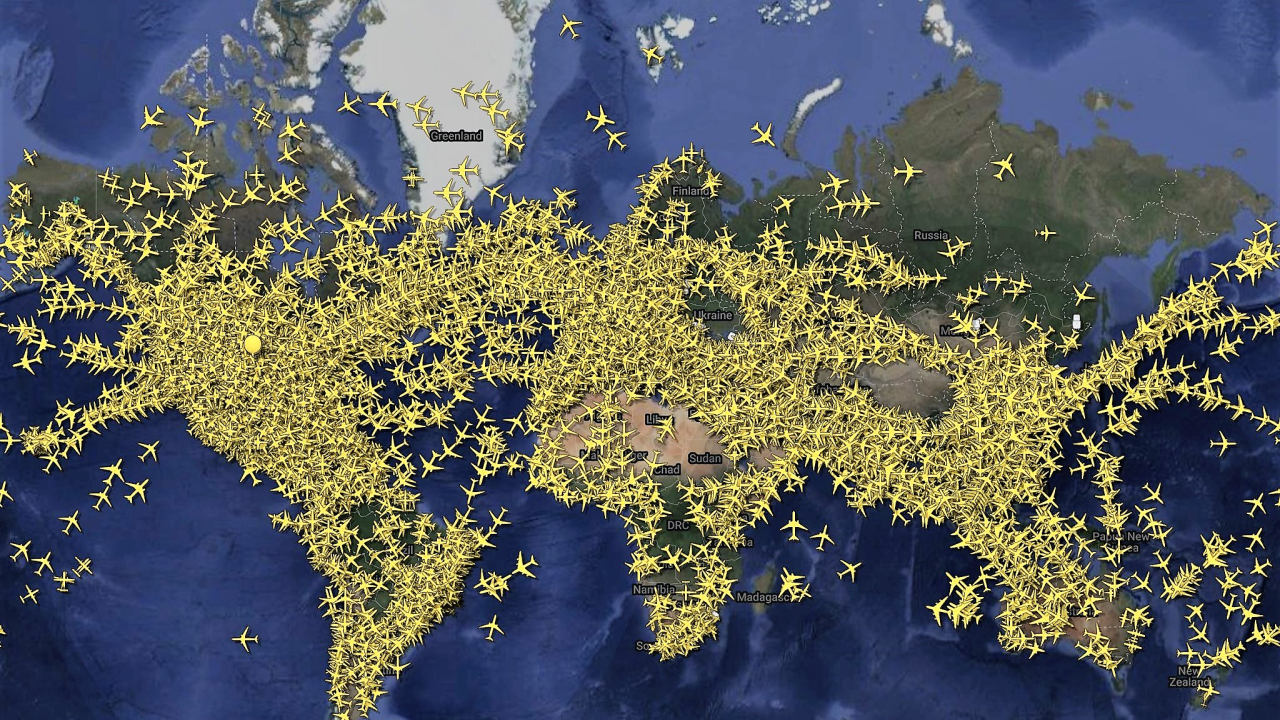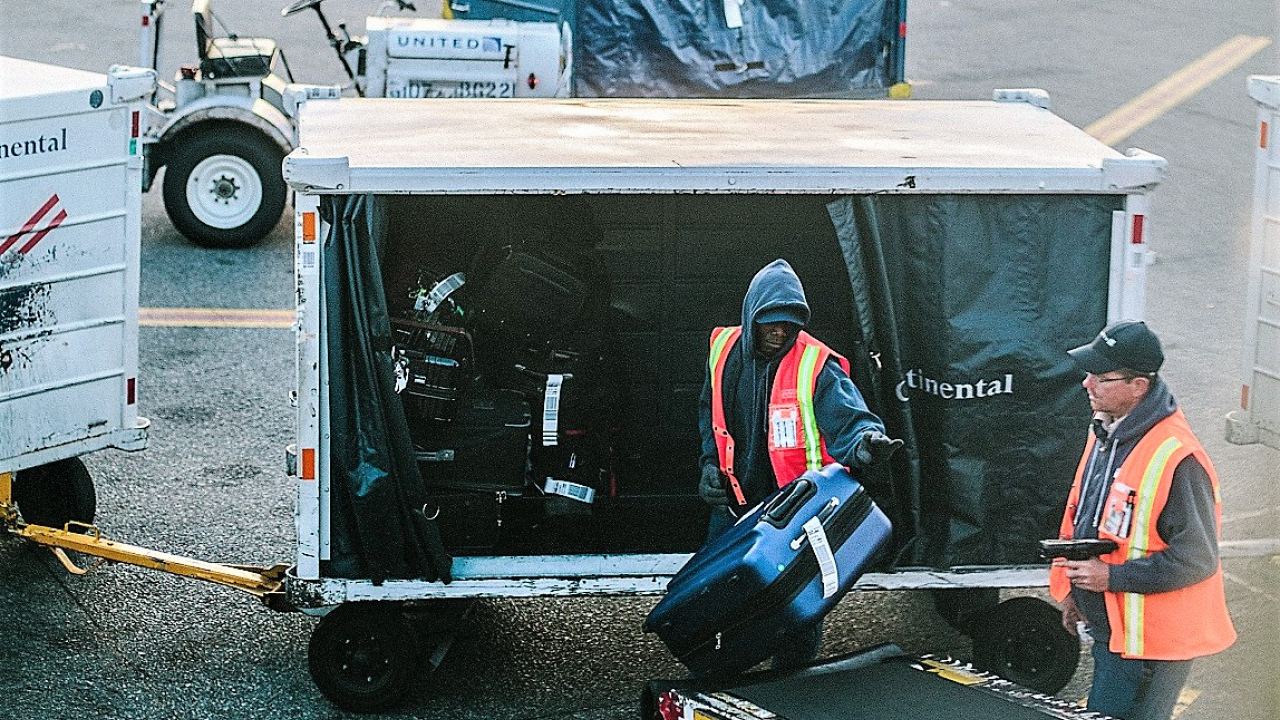Busiest Day Ever for Commercial Aviation and Consequences for Lost Luggage
Kevin Rozario
July 12, 2023

This is what the busiest ever day for commercial aviation looked like on-screen.
© Flightradar.com
A recent tweet from Flightradar24—which tracks air traffic in real time—said that the busiest day ever for commercial aviation was on July 6. While that may be good news for the financial recovery of the aviation industry, it has not been so great for passengers due to a spike in mishandled luggage.
The flight tracker—which combines data from several sources including ADS-B, MLAT, and radar aggregated with schedule and flight status data from airlines and airports—said that it tracked 134,386 commercial flights on July 6, with July 7 also “shaping up to be another busy day.”
The rebound in air travel in 2023 continues to exceed expectations, despite high prices, though there is mixed messaging on how fares will pan out over the rest of the summer.
The demand—in the face of high, but moderating, inflation and a cost of living crisis—means that 2023 will, most likely, top the almost seven billion passengers that traveled by air last year (74% of 2019), especially with Asian air travel bouncing back. According to ACI World, the region will hit 2.9 billion, or 85.3% of 2019 levels this year.
Airlines and airports have not geared up for this speedy recovery. Delays and disruptions have been widely felt over several months as many ground handlers managed the increase in traffic with fewer staff members.
Luggage Left in the Lurch
The sharp increase in air traffic without the supporting manpower required has affected luggage handling post-pandemic. According to SITA’s 2023 Baggage IT Insights report released in May, airlines and airports are facing a surge in mishandling rates, with the number of mishandled bags rising by 75% to 7.6 bags per thousand passengers in 2022. In 2021 the rate was 4.35 bags per thousand passengers, an increase of 24% on the year before.
SITA’s CEO David Lavorel, commented: “After a decade where the mishandling rate more than halved between 2007 and 2021, it is disheartening to see this rate climbing again. As an industry, we need to work hard to ensure passengers are once again confident to check in their bags. At SITA we are working directly with airlines and airports to help solve key pain points in the baggage journey through smart automation, tracking, and digital platforms.”

The failure to load bags accounted for 18% of all mishandled bags in 2022.
© Calle Macarone / Unsplash
Delayed bags accounted for 80% of all those mishandled in 2022, while lost and stolen bags increased to 7%, and damaged and pilfered bags decreased to 13%. Historically, transfer bags have accounted for the majority of mishandling. This was no different in 2022, with a one percentage point increase from 2021, pushing the proportion of bags delayed at transfer to 42%.
The failure to load bags accounted for 18% of all mishandled bags in 2022, representing a 3% decrease from the previous year. However, loading errors more than doubled compared to the previous year, accounting for 9% of all delayed bags in 2022, stemming from operational strains on baggage systems.
International Routes Suffer Most
A spokesperson for lost luggage concierge company Sostravel.com told AirportIR: “As usual, the devil is in the detail, as at the global level, the mishandling rate for international routes is 19.3, while for domestic, it is only 2.4. This means the likelihood of mishandling a bag on an international flight is about eight times higher. This increase can be attributed to the rise in long-haul flights and other factors such as airport congestion, customs procedures, staff shortages, and language barriers.”
Sostravel tracks all luggage via SITA’s baggage handling systems in order to locate and reunite it with the owner wherever they are on their journey. If the company fails to reconnect passengers with their bags within 48 hours, it says it will start paying out €100 a day for up to 10 days. Should the luggage never be found, the compensatory payment is €4,000.
With ACI forecasting global passenger volumes to reach 8.4 billion this year (representing 92% of 2019 levels) airports and airlines will need to ensure they can deliver a better luggage service.
SITA has developed the WorldTracer Auto Reflight system in direct response to high transfer mishandling rates. This solution automatically identifies bags that are not likely to make their planned connecting flight and rebooks them on the next available one using the existing bag tag—while keeping the passenger informed. The aviation IT specialist estimates that automation of reflight operations could save the industry up to $30 million per year.
